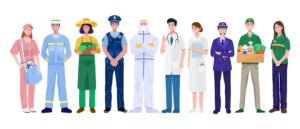Why organisations need to tackle group-think and encourage creative people
- 3 Min Read
Employers have also been urged to not be afraid of “difficult people with creative thoughts that go against the grain” to maintain creative workplaces.
- Author: Owain Thomas
- Date published: Apr 11, 2016
- Categories

Overly friendly workplaces and an imposing corporate culture could be restricting organisational growth and creative diversity.
Employers have also been urged to not be afraid of “difficult people with creative thoughts that go against the grain” to maintain creative workplaces.
Research from Rotterdam School of Management (RSM) indicated that when employees became too comfortable with their colleagues they became unwilling to challenge ideas or think differently.
The report, Relational capital and individual exploration: Unravelling the influence of goal alignment and knowledge acquisition, added that an overly-strong corporate identity could encourage goal-alignment and lack of diversity.
Earlier this week it was revealed that Barclays will put workplace friendships at the top of its staff survey this year by asking “Do you have any friends?”
The Sunday Times reported that the bank wanted to improve its culture while hoping that employees with strong workplace relationships would remain loyal to the bank.
The RSM study of 150 research and development department staff from three Fortune Global 500 firms suggested such a move would be desirable for employers with challenging cultures.
Reducing innovation
But co-author Tom Mom warned against over-emphasising this as by aligning themselves, employees became less likely to innovate away from established and accepted norms.
“We found that these workplace friendships can lead to exploration efforts and innovation, but we also discovered there’s a flipside to it,” he said.
“Being friends with people around you also makes it harder after a while to pitch plans that differ from theirs. You start to compare your radical ideas to the already established group-think. Because you are friends, you will probably be more agreeable to them while discussing plans.
“That’s how fresh and potentially ground-breaking ideas get smothered in consent and innovation is hindered. This is what we call goal alignment and from a creativity and innovation point of view this is certainly an unwanted side effect of friendships between colleagues,” he added.
Creative HR
Mom noted that employers should be encouraging relationship building between colleagues, potentially by highlighting good examples during appraisals.
However, HR leaders can be proactive by promoting job rotation or inter-team projects to involve working with wider teams.
“At the same time, companies can avoid an overabundance of goal alignment by promoting job rotation in the company. Changing teams every few years creates heterogeneity in teams,” he said.
“To help exchange knowledge, companies can also purposely create projects that require members from multiple teams to co-operate.
Also, and this might seem a bit counter-intuitive, companies should beware of creating an identity that is too strong. One shared identity that guides everyone’s actions looks like a great idea on paper, but in practice it can lead to too much goal alignment and a lack of diversity.
“So, a strong identity can hinder exploration and innovation. My advice: don’t be afraid of those ‘difficult people’ with creative thoughts that go against the grain. They might be just the explorers you need to create fresh new directions in your business,” he added.








